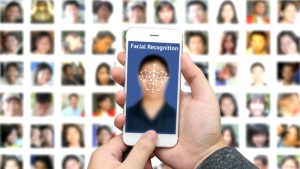An app designed to help drivers avoid traffic proved helpful during a recent deadly flood. Traffic data from Waze helped government officials and first responders in Louisiana during Baton Rouge’s flooding in August. Esri announced a partnership with Waze and local governments on Oct. 12 to encourage more states and cities to use roadway data for similar projects.
One in two American adults is in a law enforcement facial recognition database, which has the potential to disproportionately affect people of color, according to a report released by the Center for Privacy and Technology at the Georgetown University law school. A coalition of 52 civil liberties groups wrote a letter to the Justice Department, expressing their concern that facial recognition systems disproportionately affect communities of color.
The Barnacle, a parking enforcement tool launched this summer, is latching onto cars with multiple parking violations in Fort Lauderdale, Fla., and Allentown, Pa.
The City of Philadelphia’s Parks and Recreation Department dispatched two employees six months ago to hike the city’s 223 miles of public parks and photograph the trails with a Google Trekker device.
The city of Atlanta is one of 60 partners joining the Department of Energy’s Better Communities Alliance and is committed to delivering energy efficient and sustainable solutions.
U.S. cities with higher populations are more likely to rank smart city initiatives as a high or medium priority, according to a survey recently released by the International City/County Management Association and the Smart Cities Council.
City governments are looking to build their own broadband networks in order to have the infrastructure in place for the upgrade to 5G technology.
The Miami-Dade County Police Department is spending at least $2.6 million to deploy ShotSpotter, a technology that detects the sound of gunshots through sensors, after an unsuccessful pilot trial in 2013.
Boston’s Office of Emergency Management upgraded the city’s emergency notification system, AlertBoston, based on citizen feedback.
It wouldn’t be very hard for a hacker to access U.S. election systems, according to a recent report by the Institute for Critical Infrastructure Technology, titled “Hacking Elections is Easy.” “Every four years, during the presidential election, the same stories re-emerge acknowledging that the e-voting systems are vulnerable to the same old attacks, without any change in the security or oversight of the systems,” James Scott and Drew Spaniel write in the report.













